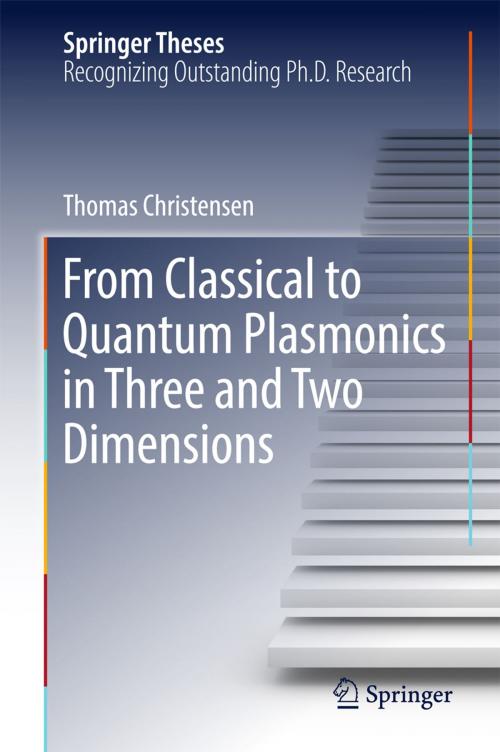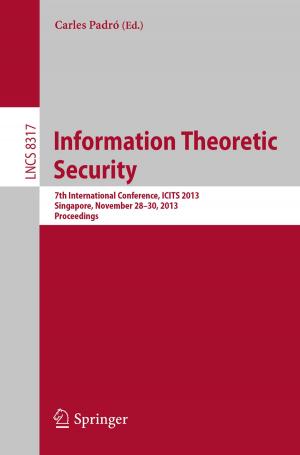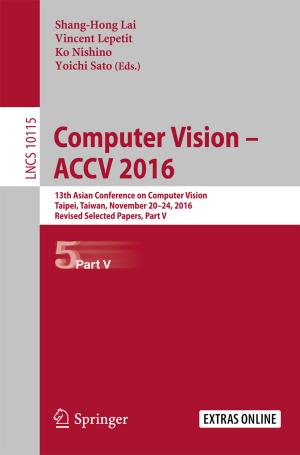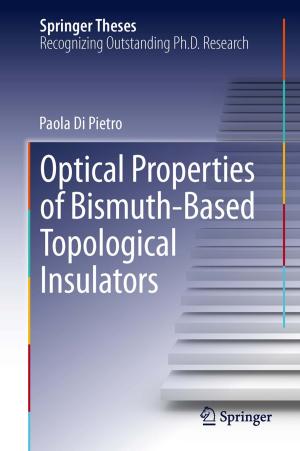From Classical to Quantum Plasmonics in Three and Two Dimensions
Nonfiction, Science & Nature, Science, Physics, General Physics| Author: | Thomas Christensen | ISBN: | 9783319485621 |
| Publisher: | Springer International Publishing | Publication: | January 11, 2017 |
| Imprint: | Springer | Language: | English |
| Author: | Thomas Christensen |
| ISBN: | 9783319485621 |
| Publisher: | Springer International Publishing |
| Publication: | January 11, 2017 |
| Imprint: | Springer |
| Language: | English |
This thesis provides a comprehensive introduction to two active research directions within the field of plasmonics: (i) nonclassical, or quantum, aspects of the plasmonic response; and (ii) two-dimensional plasmonics, a recent innovation in the field stimulated by the advent of two-dimensional materials. It discusses the fundamentals of this field in detail, and explores several current research directions.
Nonclassical plasmonics has been spurred on in recent years by the tremendous technological progress in nanofabrication and optical characterization; today, it is possible to investigate the plasmonic features of nanostructures with characteristic features in the few nanometer range. The book describes and analyzes the breakdown of the classical theory under these conditions and explores several alternatives and extensions.
The unique electronic and dimensional features of novel two-dimensional materials, such as graphene, lie at the core of plasmonics' most rapidly developing subfield; two-dimensional plasmonics. This thesis provides a clear and comprehensive exposition of the central features for interested researchers looking for an entry point to this riveting area.
This thesis provides a comprehensive introduction to two active research directions within the field of plasmonics: (i) nonclassical, or quantum, aspects of the plasmonic response; and (ii) two-dimensional plasmonics, a recent innovation in the field stimulated by the advent of two-dimensional materials. It discusses the fundamentals of this field in detail, and explores several current research directions.
Nonclassical plasmonics has been spurred on in recent years by the tremendous technological progress in nanofabrication and optical characterization; today, it is possible to investigate the plasmonic features of nanostructures with characteristic features in the few nanometer range. The book describes and analyzes the breakdown of the classical theory under these conditions and explores several alternatives and extensions.
The unique electronic and dimensional features of novel two-dimensional materials, such as graphene, lie at the core of plasmonics' most rapidly developing subfield; two-dimensional plasmonics. This thesis provides a clear and comprehensive exposition of the central features for interested researchers looking for an entry point to this riveting area.















